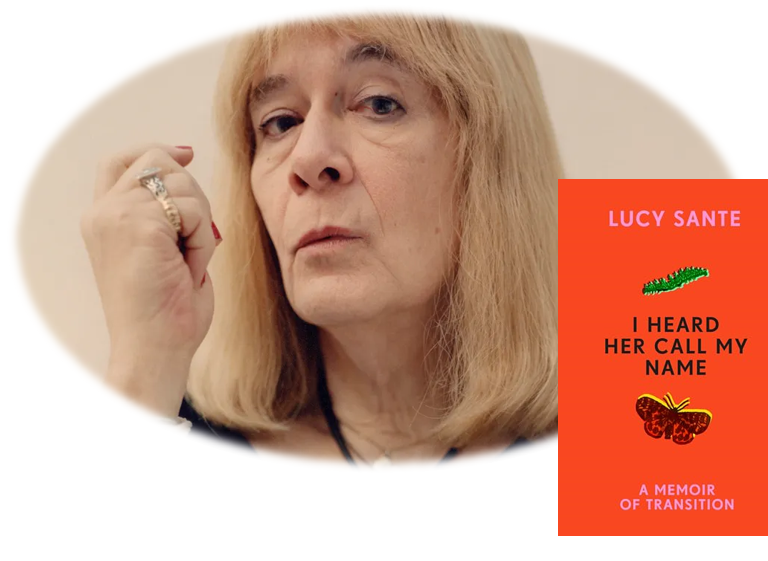I Heard Her Call My Name

Lucy Sante’s I Heard Her Call My Name: A Memoir of Transition is a profoundly moving and introspective reflection on the personal and societal dimensions of gender identity. Sante, a well-regarded writer and historian, has crafted a memoir that is as much about the intellectual and creative journey she has undertaken as it is about her emotional and physical transition to living as a transgender woman at the age of 66. The memoir presents her experiences and revelations with elegance, clarity, and vulnerability, offering a nuanced exploration of what it means to transition in later life.
The book is structured in a way that blends Sante’s personal history with the larger cultural and societal contexts that shaped her understanding of gender. Born in Belgium and later raised in the United States, Sante’s early life is marked by a series of disjointed experiences, often feeling out of place both in her family and in the world at large. As she recounts her youth, including her immersion in New York’s bohemian art scene and her work as a writer and historian, Sante uses these experiences to frame the deeply personal process of transitioning. This melding of past and present allows Sante to reflect not only on her own journey but also on the broader historical shifts in understanding gender and identity over time.
Sante’s decision to come out as a transgender woman is not framed as a sudden revelation, but rather as the culmination of a long, complex process of self-exploration. Her transition, which came later in life, serves as an opportunity to question how gender has been socially constructed and how she has navigated the world under the weight of those constructions. Sante’s writing is eloquent, direct, and often poetic, balancing the emotional depth of her personal story with sharp cultural observations. She engages with themes of the body, gendered expectations, and the way that identity is performed and perceived in society. Her insights are both intellectual and emotional, making the memoir accessible to those who may be unfamiliar with transgender issues while also providing a deep and personal narrative for those who may share similar experiences.
One of the most powerful aspects of the memoir is the vulnerability that Sante displays throughout. The book is not just a narrative of transition but a deep reflection on what it means to grow older and come into one’s own identity. Sante writes about the complexities of living as a transgender woman at an age when many are thinking about retirement or their place in the world in a different way. She writes about the body—how it changes with age, how it is viewed by others, and how it is intimately tied to identity. Through her reflections, she challenges traditional narratives of aging and transitions, offering a more nuanced view of how gender and time intersect.
In addition to her personal narrative, Sante’s memoir touches on the cultural and political dimensions of being transgender. She examines the ways in which societal expectations around gender roles and identity have shaped her experience. As a writer, she is acutely aware of how language can reflect or reinforce these constructs, and she takes care to dissect the terms, definitions, and assumptions that have surrounded gender throughout her life. Sante’s exploration of how the cultural understanding of gender has shifted over the years offers important insights into both her personal experience and the broader transgender movement.
The memoir’s critical acclaim comes from its eloquent prose and its ability to open up a discussion about aging, transition, and the complexities of gender. The Boston Globe describes it as “a timely but timeless memoir,” noting how Sante brings clarity and depth to her narrative. The Washington Post highlights the memoir’s importance in providing both a personal and a public perspective on the transgender experience, making it an invaluable text for readers who may be seeking understanding, guidance, or solidarity in their own transitions.
What makes I Heard Her Call My Name particularly compelling is its accessibility. While the memoir certainly speaks to the transgender experience, it also offers universal themes of identity, self-discovery, and the personal growth that comes with age. Sante’s reflections resonate with anyone who has grappled with the complexities of living in a body that feels foreign or constrained by external expectations. Her journey, framed through the lens of her work as a writer and historian, is not only about transitioning in terms of gender, but also about transitioning in terms of her understanding of herself and her place in the world.
In conclusion, I Heard Her Call My Name is a deeply important and beautifully written memoir that contributes meaningfully to the literature of transgender experiences. It offers readers an opportunity to witness the courage, vulnerability, and intellectual rigor that Sante brings to her own transition. Through her exploration of gender, aging, and identity, Sante delivers a memoir that is both intensely personal and universally resonant. Her ability to balance introspection with social analysis, vulnerability with intellectual clarity, makes this memoir a significant contribution to both the genre of personal memoirs and to the broader conversation on gender, transition, and identity.



